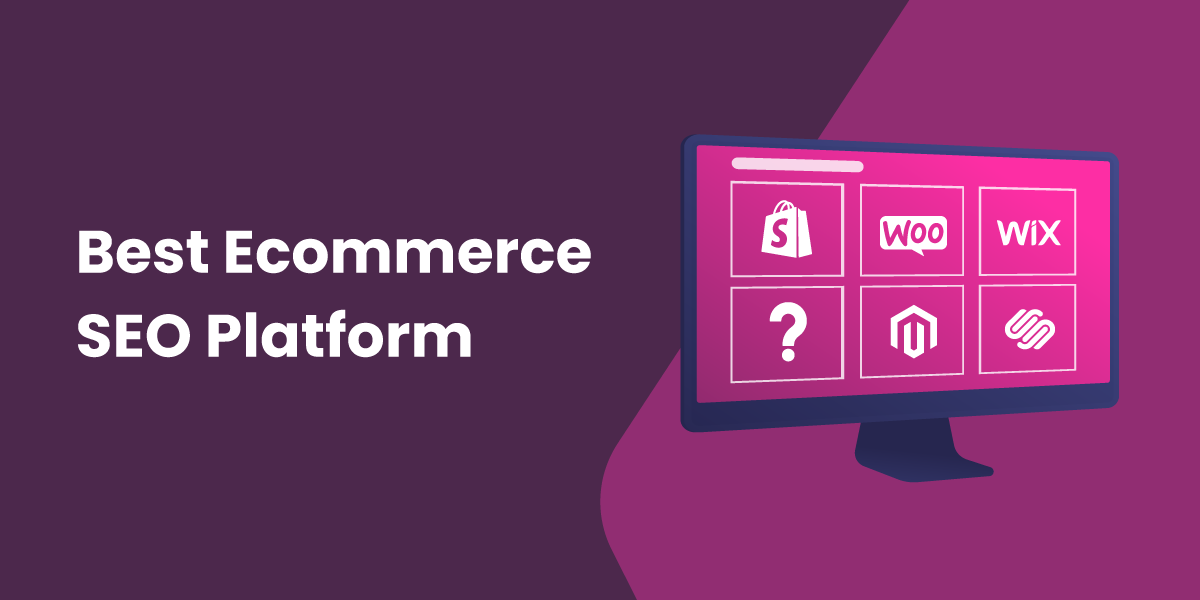The Definitive Guide to Finding the Best Ecommerce Platform for SEO
Having a strong online presence is crucial for the success of any business. When it comes to ecommerce, one of the key factors that can make or break your online store is search engine optimization (SEO).
SEO plays a vital role in driving organic traffic to your website, increasing your visibility, and boosting your sales. Therefore, it's essential to carefully consider the ecommerce platform you choose and its impact on your SEO efforts.
Understanding the Importance of SEO in Ecommerce
Before diving into the details of finding the best ecommerce platform for SEO, let's first understand why SEO is so crucial in the ecommerce industry.
SEO, or search engine optimization, is the process of optimizing your website to improve its visibility in search engine results pages (SERPs). In today's digital age, where online shopping has become the norm, having a strong online presence is essential for any ecommerce business. And that's where SEO comes into play.
Imagine this: you have a beautifully designed ecommerce website with a wide range of products, competitive prices, and excellent customer service. But if your website doesn't appear on the first page of search engine results when potential customers search for products you offer, you might as well be invisible.
The Role of SEO in Ecommerce Success
SEO is not just about getting your website to rank higher in search engines like Google. It's about driving organic traffic to your site, and attracting potential customers who are actively searching for the products or services you offer. When your website appears on the first page of search results, it increases your visibility and credibility, making it more likely for users to click on your website and explore what you have to offer.
Furthermore, higher rankings mean more visibility, which ultimately leads to more potential customers visiting your website. And the more visitors you have, the higher the chances of converting them into paying customers. In other words, SEO is a powerful tool that can significantly impact your ecommerce success.
Why Your Ecommerce Platform Matters for SEO
When it comes to SEO, your ecommerce platform plays a vital role. It provides the foundation for implementing SEO best practices and ensuring that your website is search engine friendly.
A well-optimized ecommerce platform can help search engines crawl and index your site more effectively, making it easier for them to understand your content and rank your website accordingly. On the other hand, a poorly optimized platform can hinder your SEO efforts and make it harder for search engines to discover and rank your site.
But what exactly makes an ecommerce platform SEO-friendly? Here are a few key factors to consider:
- Site speed: A fast-loading website not only provides a better user experience but also improves your chances of ranking higher in search results. Search engines prioritize websites that load quickly, as it indicates a positive user experience.
- Mobile responsiveness: With the increasing use of smartphones and tablets, having a mobile-friendly website is crucial. Search engines now prioritize mobile-friendly websites, and having a responsive design ensures that your site looks and functions well on all devices.
- URL structure: A well-structured URL that includes relevant keywords can improve your website's visibility in search results. It helps search engines understand the content of your pages and makes it easier for users to navigate your site.
- Meta tags: Optimizing your meta tags, including the title tag and meta description, can significantly impact your click-through rates. These tags provide a concise summary of your page's content and help search engines understand what your page is about.
- Schema markup: Implementing schema markup on your ecommerce site can enhance your search engine visibility by providing additional information about your products, such as price, availability, and reviews.
These are just a few examples of how your ecommerce platform can impact your SEO efforts. Choosing the right platform that offers robust SEO features and flexibility is crucial for maximizing your online visibility and driving organic traffic to your ecommerce site.
Key Features of SEO-Friendly Ecommerce Platforms
Now that we understand the importance of SEO in ecommerce, let's explore the key features that make an ecommerce platform SEO-friendly.
When it comes to building an online store, there are several factors to consider to ensure your website ranks well in search engine results and attracts organic traffic. In addition to providing a great user experience, an SEO-friendly ecommerce platform incorporates various features that optimize your website for search engines.
Mobile-Friendly Design and SEO
In today's mobile-first world, having a mobile-friendly website is not only important for the user experience but also for SEO. Google has introduced mobile-first indexing, which means that the mobile version of your website is now the primary version used for ranking and indexing in search results. Therefore, it's crucial to choose an ecommerce platform that offers responsive design and ensures a seamless experience across different devices.
A responsive design allows your website to adapt to various screen sizes, ensuring that your content is easily accessible and readable on smartphones, tablets, and desktop computers. This not only improves user experience but also helps search engines understand and index your website better. By providing a consistent and user-friendly experience across devices, you increase the chances of attracting and retaining visitors, leading to higher conversion rates and improved SEO performance.
Importance of Site Speed and Performance
Site speed is another critical factor that directly impacts SEO. In a fast-paced world, users have little patience for slow-loading websites. Search engines also favor websites that provide a fast and smooth user experience. When choosing an ecommerce platform, prioritize speed optimization features such as CDN integration, caching mechanisms, and efficient code structure to ensure your website loads quickly.
A slow-loading website not only frustrates users but also leads to higher bounce rates and lower search engine rankings. By investing in an ecommerce platform that prioritizes site speed and performance, you can provide a seamless browsing experience that keeps visitors engaged and encourages them to explore your products or services further. Additionally, a fast-loading website improves the chances of search engine crawlers fully indexing your pages, leading to better visibility in search results.
The Role of SSL Certificates in SEO
Security is a top priority for online shoppers, and it's also essential for SEO. Google considers SSL certificates as a ranking signal, rewarding websites that provide a secure browsing experience. An SSL certificate encrypts the data transmitted between the user's browser and your website, giving customers peace of mind that their information is safe.
When selecting an ecommerce platform, it's crucial to choose one that offers built-in SSL support or makes it easy to install and manage SSL certificates. By securing your website with an SSL certificate, you not only protect your customers' sensitive information but also gain a competitive advantage in search engine rankings. Websites with SSL certificates are more likely to appear higher in search results, as search engines prioritize secure websites to ensure a safe browsing experience for users.
An SEO-friendly ecommerce platform incorporates features such as mobile-friendly design, site speed optimization, and SSL certificate support. By choosing a platform that prioritizes these key features, you can enhance your website's visibility, attract organic traffic, and ultimately drive more sales for your online store.
Evaluating Ecommerce Platforms for SEO
Now that you know the key features to look for in an SEO-friendly ecommerce platform, let's dive into the process of evaluating different platforms.
Assessing SEO Tools and Capabilities
One of the first things to consider when evaluating an ecommerce platform is its built-in SEO tools and capabilities. Does the platform offer robust SEO features such as customizable meta tags, sitemaps, canonical URLs, and URL structure optimization? Look for platforms that provide these essential SEO elements to ensure that you have complete control over optimizing your website for search engines.
Don't neglect to evaluate how well your ecommerce platform will integrate with your ratings and review software. Reviews, video reviews, and Q&A are all vital pieces of the ecommerce SEO puzzle. Consumers look for reviews before buying over 95% of the time, and search engines know this, so websites that collect and display a high number of reviews have a leg up over their competitors.
Checking Platform Scalability and SEO
As your ecommerce business grows, your platform should be able to handle the increasing traffic and demands. When choosing an ecommerce platform, consider its scalability and how it impacts SEO. Can the platform handle large volumes of products and pages without compromising site speed? How easy is it to add new features or functionalities to enhance your SEO efforts? Ensure that the platform you choose can accommodate your growth and scale alongside your business.
Top Ecommerce Platforms for SEO
Now comes the exciting part—exploring the top ecommerce platforms that are known for their SEO-friendliness.
Overview of Leading SEO-Friendly Platforms
- Shopify: Shopify is a popular ecommerce platform known for its user-friendly interface and strong SEO capabilities. It offers customizable meta tags, automatic sitemap generation, and easy integration with SEO apps and plugins. Additionally, Shopify provides responsive themes and lightning-fast page loading, improving both user experience and SEO performance.
- WooCommerce: WooCommerce is a flexible ecommerce platform built on WordPress. It offers a wide range of SEO plugins and themes, allowing you to optimize your website for search engines. With WooCommerce, you have complete control over your URL structure, meta tags, and content, enabling you to implement advanced SEO strategies.
Pros and Cons of Each Platform
While both Shopify and WooCommerce are excellent choices for SEO-friendly ecommerce platforms, it's important to consider the pros and cons of each before making a decision.
Shopify's main advantage is its user-friendly interface, making it easy for beginners to set up and manage an online store. However, some users may find the platform's customization options limited compared to WooCommerce.
On the other hand, WooCommerce provides unparalleled customization options and maximum control over your website. However, it requires a higher level of technical expertise and may involve additional costs for themes, plugins, and hosting.
Making the Final Decision: Choosing Your Ecommerce Platform
When choosing your ecommerce platform, it's crucial to balance your SEO needs with other business requirements.
Balancing SEO Needs With Other Business Requirements
Consider factors like pricing, ease of use, available integrations, customer support, and scalability. Make sure the platform aligns with your overall business goals and provides the necessary tools and features to support your SEO efforts.
Future-Proofing Your Ecommerce SEO Strategy
Lastly, keep in mind that SEO is an ongoing process. As search engine algorithms evolve and customer behaviors change, it's essential to stay updated and adapt your SEO strategy accordingly. Choose an ecommerce platform that allows flexibility and enables you to implement future SEO techniques easily.
Conclusion
Finding the best ecommerce platform for SEO is a crucial step in building a successful online store. By considering the importance of SEO, understanding the key features of SEO-friendly platforms, evaluating different options, exploring the top platforms, and balancing your SEO needs with other business requirements, you can make an informed decision that sets your ecommerce store up for long-term success in an increasingly competitive online landscape.

 Drive More Visibility, Traffic, and Sales
Drive More Visibility, Traffic, and Sales
